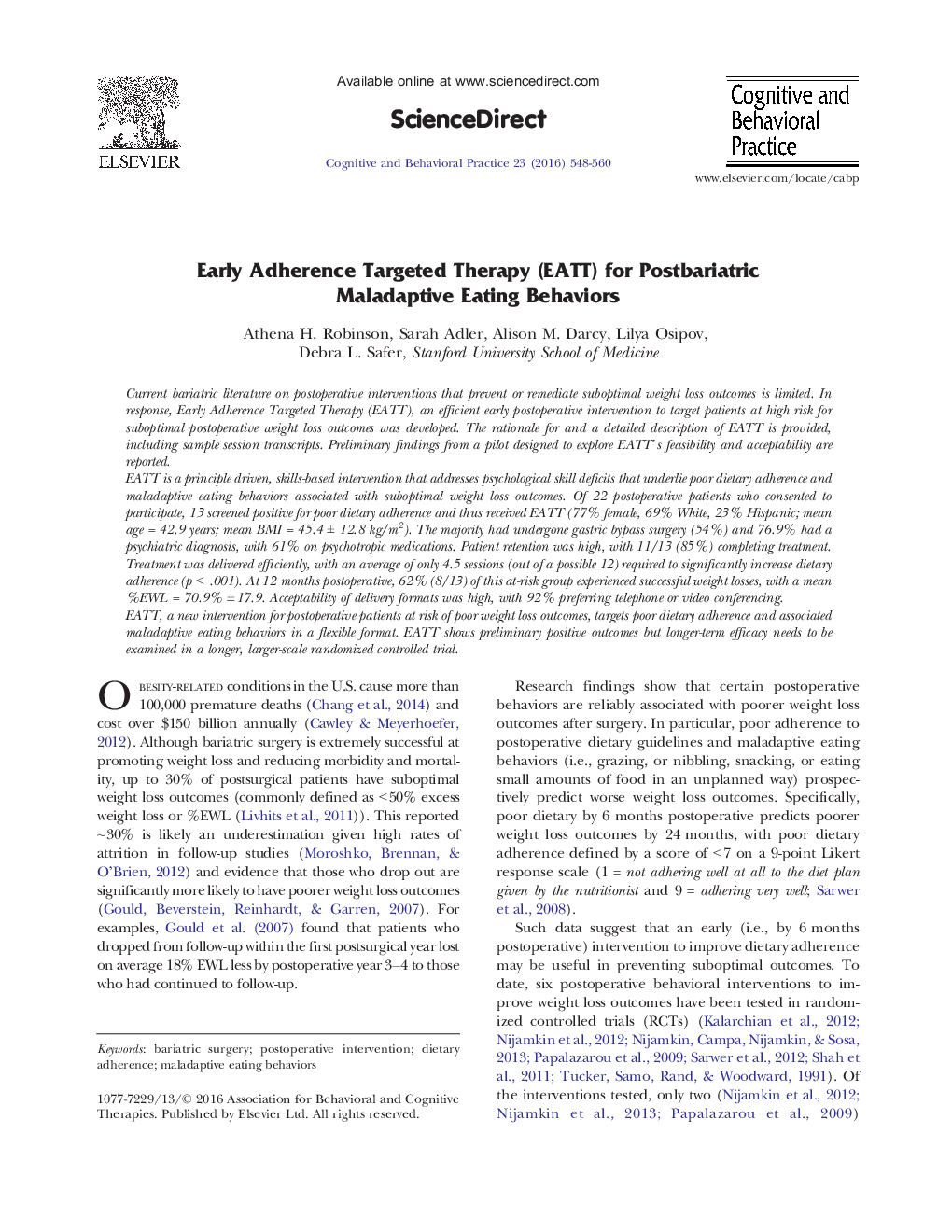| کد مقاله | کد نشریه | سال انتشار | مقاله انگلیسی | نسخه تمام متن |
|---|---|---|---|---|
| 5038625 | 1370280 | 2016 | 13 صفحه PDF | دانلود رایگان |

- We describe Early Adherence Targeted Therapy (EATT), a new early postoperative intervention.
- EATT identifies and targets patients with poor dietary adherence at high-risk for suboptimal weight loss outcomes postbariatric surgery.
- We report preliminary findings from a pilot designed to explore EATT's feasibility and acceptability.
- EATT demonstrated high rates of patient retention, session efficiency, and acceptance of therapy delivery formats.
- EATT fills a gap in the literature.
Current bariatric literature on postoperative interventions that prevent or remediate suboptimal weight loss outcomes is limited. In response, Early Adherence Targeted Therapy (EATT), an efficient early postoperative intervention to target patients at high risk for suboptimal postoperative weight loss outcomes was developed. The rationale for and a detailed description of EATT is provided, including sample session transcripts. Preliminary findings from a pilot designed to explore EATT's feasibility and acceptability are reported.EATT is a principle driven, skills-based intervention that addresses psychological skill deficits that underlie poor dietary adherence and maladaptive eating behaviors associated with suboptimal weight loss outcomes. Of 22 postoperative patients who consented to participate, 13 screened positive for poor dietary adherence and thus received EATT (77% female, 69% White, 23% Hispanic; mean age = 42.9 years; mean BMI = 45.4 ± 12.8 kg/m2). The majority had undergone gastric bypass surgery (54%) and 76.9% had a psychiatric diagnosis, with 61% on psychotropic medications. Patient retention was high, with 11/13 (85%) completing treatment. Treatment was delivered efficiently, with an average of only 4.5 sessions (out of a possible 12) required to significantly increase dietary adherence (p < .001). At 12 months postoperative, 62% (8/13) of this at-risk group experienced successful weight losses, with a mean %EWL = 70.9% ± 17.9. Acceptability of delivery formats was high, with 92% preferring telephone or video conferencing.EATT, a new intervention for postoperative patients at risk of poor weight loss outcomes, targets poor dietary adherence and associated maladaptive eating behaviors in a flexible format. EATT shows preliminary positive outcomes but longer-term efficacy needs to be examined in a longer, larger-scale randomized controlled trial.
Journal: Cognitive and Behavioral Practice - Volume 23, Issue 4, November 2016, Pages 548-560